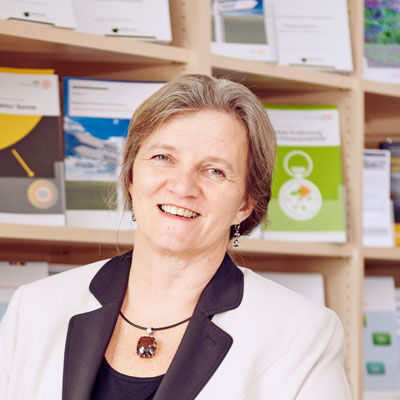In the last years, unusual heavy rainfall has caused floods throughout Europe resulting in severe damage to infrastructure, households, and businesses. It showcased again how changes related to weather variability and climate pose great challenges for society. From the water budget, to the energy sector, and the construction industry, nearly all economic sectors and aspects of life are directly or indirectly affected by climate change and will be increasingly impacted in the future. The recently published Intergovernmental Panel on Climate Change (IPCC) Special Report on Global Warming of 1.5°C (SR1.5) clearly shows that, due to the non-linearity and the risk of crossing tipping points in the Earth system, every tenth of a degree counts in terms of mitigating climate warming and to reduce the impacts on environment and human societies.
The impacts of climate change are regionally, as well as locally very diverse. Simultaneously, adaptation to climate change is place- and context-specific, with no single approach for reducing risks appropriately across all settings, industries and sectors. Furthermore, different approaches must be undertaken to comply with the needs of, for instance, urban planners, delta managers, or business owners. To understand and tackle the complex climate related challenges, a systems approach is demanded.
As scientific knowledge related to climate change advances, decision-makers in the public and private sector have an increasing need for information with respect to the impacts of climate change in their specific field of activity. This is precisely where climate services come in, a field which has evolved considerably in the last years worldwide. Climate services can be defined as the transfer of decision-relevant climate knowledge to a variety of users in the form of tailor-made products and services. Building on our experiences, climate services will follow a trans-disciplinary process of co-design and co-development in cooperation with application and research partners, in order to best meet the user requirements for a specific question. An important aspect in this context is trust building, which is also key for the success of climate services. A continuous dialogue and the integration of different kinds of knowledge are fundamental for the progressive building of trust, confidence and mutual learning between scientists and practitioners.
In this light, I am particularly looking forward to ECCA 2019 to discuss with researchers and practitioners the latest developments in the climate adaptation community, to foster knowledge for the creation of a more sustainable and resilient future for Europe and beyond.


